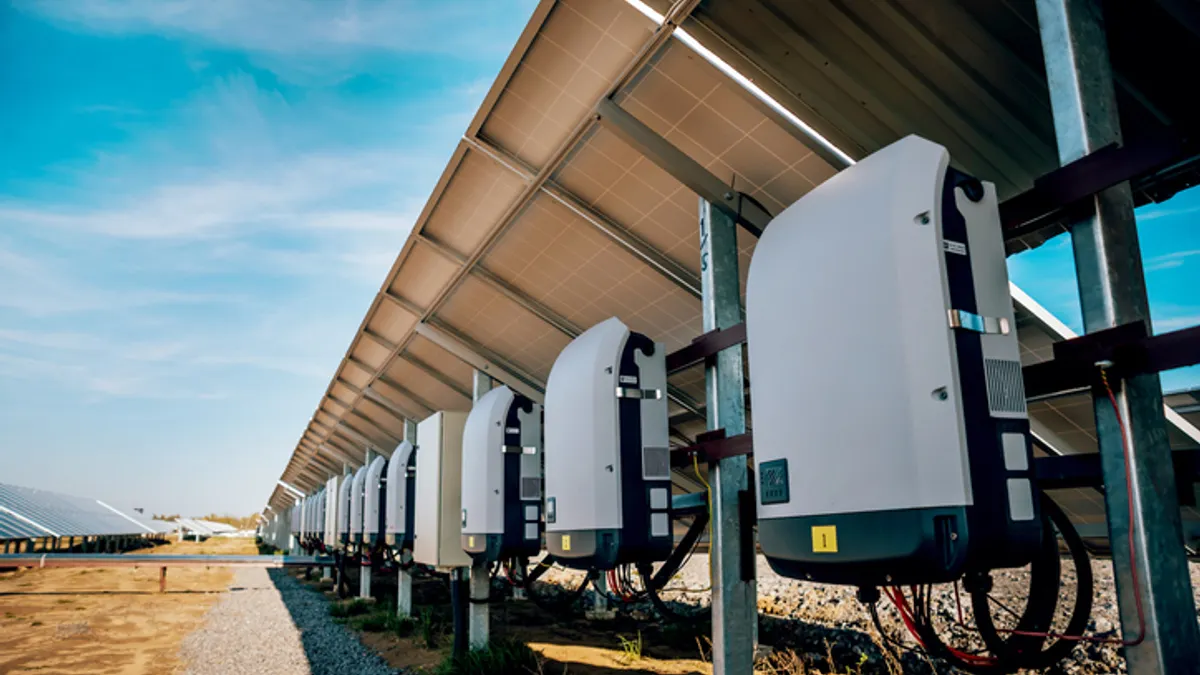Dive Brief:
- German insurance giant, Munich Re, announced on Friday what it called the world's first long-term insurance product for the existing warranties manufacturers issue on battery performance.
- The offering is intended to ease project financing and quicken the pace of deployment for batteries. Munich Re is offering insurance policies for 10 years to cover "major projects, such as those to ensure grid stability or to cover peak demand periods."
- The first storage product to receive long-duration coverage is the flow battery technology from U.S. manufacturer ESS. ESS began collaborating with partners in Europe last year, deploying two of its Energy Warehouse 50 kW / 400 kWh flow battery systems to Germany.
Dive Insight:
The insurance helps battery manufacturers "manage warranty claims more effectively," Jason Burwen, VP of policy for the Energy Storage Association, told Utility Dive via email.
"This could help make it easier to scale up manufacturing for newer energy storage technologies," Burwen said.
Munich Re is a leading world provider of reinsurance, offering manufacturers an insurance policy for their warranties.
"That protection would be particularly important for smaller manufacturers and newer storage techs," Burwen said. "Having a new tool to manage risk effectively should be useful for helping smaller manufacturers and newer technologies scale."
Munich Re's policy would protect manufacturers from exceeding predetermined amounts of spending on costly battery module repairs or replacements.
The policy is a "game changer," according to Craig Evans, founder and CEO of ESS.
"Customers can now deploy our flow batteries with greater confidence in securing financing, system operations, and successful performance outcomes," Evans said in a press statement.
Flow battery makers want a share of the energy storage market, currently dominated by lithium-ion technology. Other flow battery manufacturers, including Vionx Energy in 2017, have announced insurance coverage for their products to help bridge that gap.
"Insurance is an important component to provide financial security to a project developer especially for alternative technologies to lithium-ion batteries, because many of the guarantees they claim for their systems often outlive the history of the company that is selling it, and that is hard to back financially," Yayoi Sekine, energy storage analyst for BloombergNEF, told Utility Dive via email.
"It's important to note that this doesn't mean flow batteries automatically will start competing against lithium-ion batteries head-to-head and win, just that they have overcome one of the many hurdles for their deployment," she added.
In the second phase, the insurance will be used to create policies for batteries in the mobility market, such as the performance of electric vehicle batteries.
This article was updated to include a quote from BloombergNEF's Yayoi Sekine.













